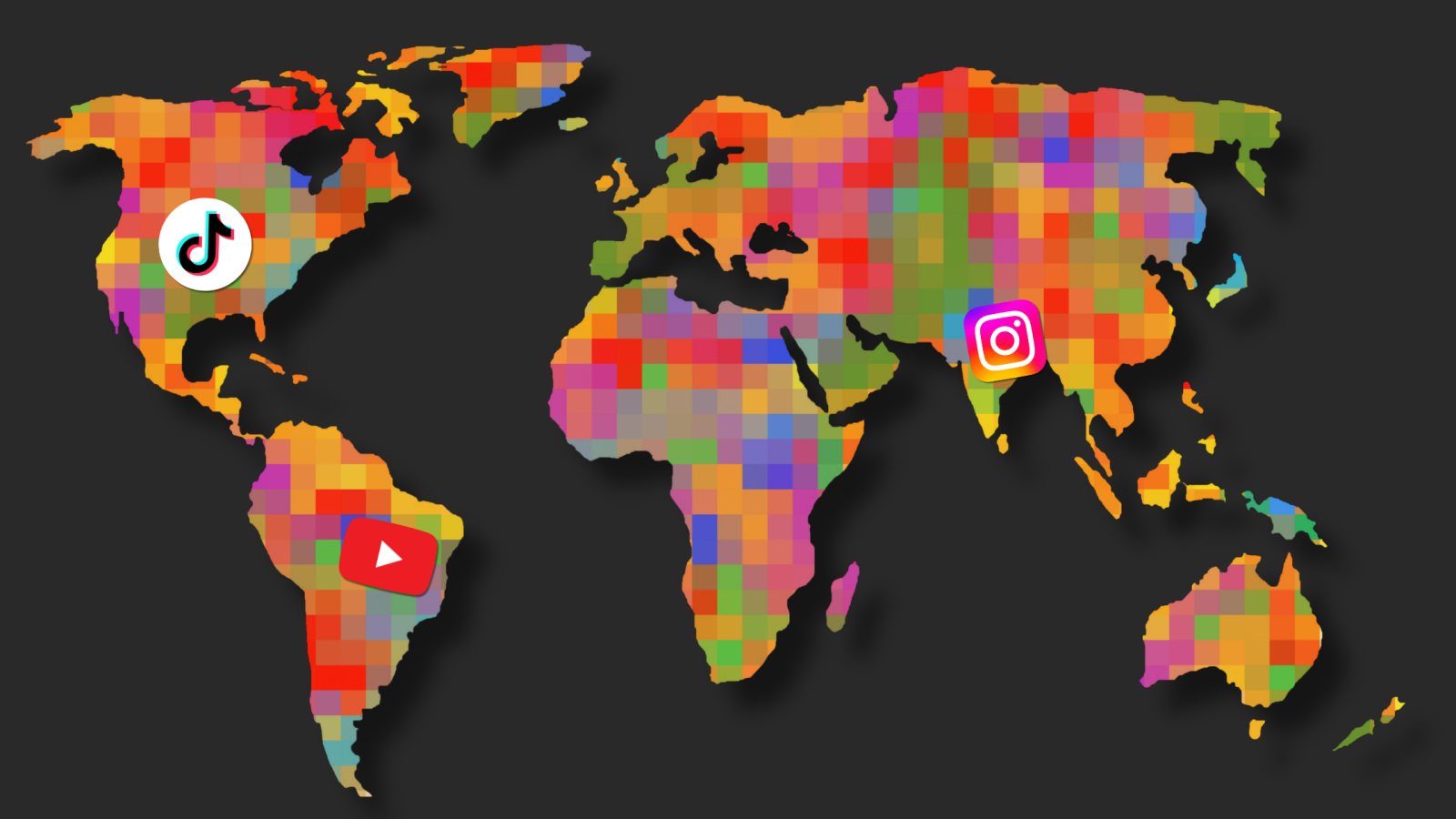Is the internet re-localising?

Photo: Image made with Canva Pro

It’s been a busy few weeks for the social media world. TikTok is on the verge of a US sale – which could also see the app returning to India. Meanwhile, Meta is now offering subscriptions in the UK and Europe. The emerging bigger picture is one of digital fragmentation, along very traditional physical borders.
TikTok stays in the US, with rumours of it returning to India
TikTok is finally in serious talks for a US sale, with a consortium of investors now identified. The interested parties are all heavily involved in media, technology, and entertainment. The Murdoch’s involvement will bring in traditional media interests; Oracle is heavily involved in tech, particularly AI; and Silver Lake has just co-acquired EA, alongside its existing sports portfolio. These interests could dictate how TikTok’s algorithm behaves, and what the platform prioritises moving forward.
Perhaps a more interesting knock-on effect is whether this opens India up to re-adopting TikTok. The app has been banned in India for several years now, allowing Instagram and YouTube to grow rapidly in the region. Because the ban is political in nature, however, a US-owned version of the app could see the doors opening once more. While still early days, and unlikely to go public anytime soon, it would make sense if there were movements happening below the surface now. Whether TikTok could compete with the now-entrenched Reels and Shorts is another matter entirely.
Meta aims for subscriptions
In another instance of geographical shifts, Meta has announced a £2.99 monthly subscription to view its platform without ads in the UK. It currently offers a similar subscription for €5.99 in the EU.
When consumers are asked what they would be willing to pay for on a social media platform, an ad-free experience is among the top contenders, per MIDiA’s consumer survey. However, this move from Meta is likely motivated by regulation rather than consumer interest. The UK’s Information Commissioner's Office (ICO) published guidance about ad-free subscriptions earlier this year, which has resulted in changing models across news websites, as well.
Featured Report
Social 2025 Navigating platforms for fan power
The biggest apps are in the process of disruption. TikTok’s uncertain future and Meta’s apps relaxing content restrictions and fact checking will constitute greater challenges for creators, advertisers, and audiences looking to use and benefit from these platforms.
Find out more…However, the £2.99 price point reflects that of the Snapchat+ subscription, which reportedly hit 14 million subscribers earlier this year. Even if this move is motivated by regulation, it could become a healthy revenue source in Europe and the UK, where the average revenue per daily active user across social platforms is $3.30, per MIDiA’s 2024 Social Forecast. The US, for context, has an ARPDAU of $9.95, which would be much harder to offset.
A fragmenting digital world along physical lines
Having social platforms as the borderless access point to the internet has resulted in a unique dual impact. On the one hand, culture has globalised. A trend can start in a bedroom in LA and be viral in Uzbekistan in an hour. Gen Z linguistic coding defies language barriers, and all topics now follow a somewhat predictable pattern of online discourse no matter the subject or format.
Simultaneously, culture has fragmented into hyper-niche bubbles. Algorithms determine who sees what, and when. Creators struggle to break beyond their initial audiences, and audiences are now served breaking news based on their specific preferences in cat videos and fitness supplements.
Social platforms are key to information infrastructure in the digital age. While their initial impact was to build a largely borderless world, emerging trends of corporate consolidation, audience fragmentation, and regulatory shifts are resulting in an increasingly delineated space. Geographic borders are becoming digital ones, resulting in a potentially very different digital landscape depending on where you are in the world.
In an ironic and very roundabout twist, the internet may be reverting to its older, more decentralised state – where websites were shared by word of mouth, and culture was decided down the road, not halfway across the world.

The discussion around this post has not yet got started, be the first to add an opinion.